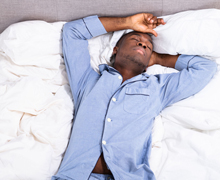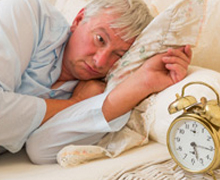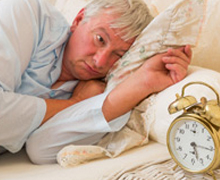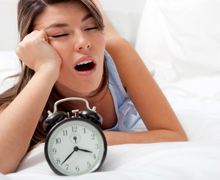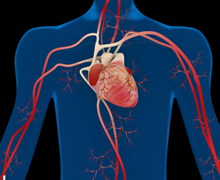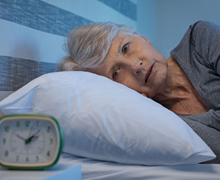During a good night's sleep is when your brain takes out the trash.
Researchers at Northwestern University found deep sleep has the power to clear waste from the brain.
Staff Reports,
February 01, 2021
A healthy gut microbiome may be important to healthy sleep.
Japanese researchers found mice with depleted gut bacteria had trouble producing serotonin which they believe led to difficulty sleeping.
Staff Reports,
January 18, 2021
If you have trouble with unwanted thoughts maybe you should improve your sleep.
Researchers have discovered lack of sleep significantly affects your ability to stop unpleasant and unwanted thoughts from entering your mind.
Staff Reports,
October 26, 2020
It seems insomnia can be reduced if you add a little weight to the problem.
Researchers in Sweden found study participants reported significantly reduced insomnia severity, better sleep maintenance, a higher daytime activity level, and reduced symptoms of fatigue, depression and anxiety when sleeping with a weighted chain blanket.
Staff Reports,
September 28, 2020
A new phenomenon is causing college students to lose sleep.
Research shows many students lose sleep because of a condition called nomophomia, which is the fear of being detached from mobile phone connectivity.
Staff Reports,
September 04, 2020
The amount of natural light office workers see can make a difference in their lives.
A newly released study showed office workers exposed to natural light during the day slept an average of 37 additional minutes at night and scored 42 percent better on cognitive tests compared to those exposed to only artificial light.
Staff Reports,
June 08, 2020
Going to sleep later than normal makes your heart beat faster.
Researchers have discovered by analyzing data from wearable technology that not having a consistent sleep time affects your resting heart rate.
Staff Reports,
March 30, 2020
Think about what you eat if you don't want to count sheep while trying to fall asleep.
A new study from Columbia University found women who consumed a diet high in refined carbohydrates and sugar were more likely to develop insomnia.
Staff Reports,
March 16, 2020

